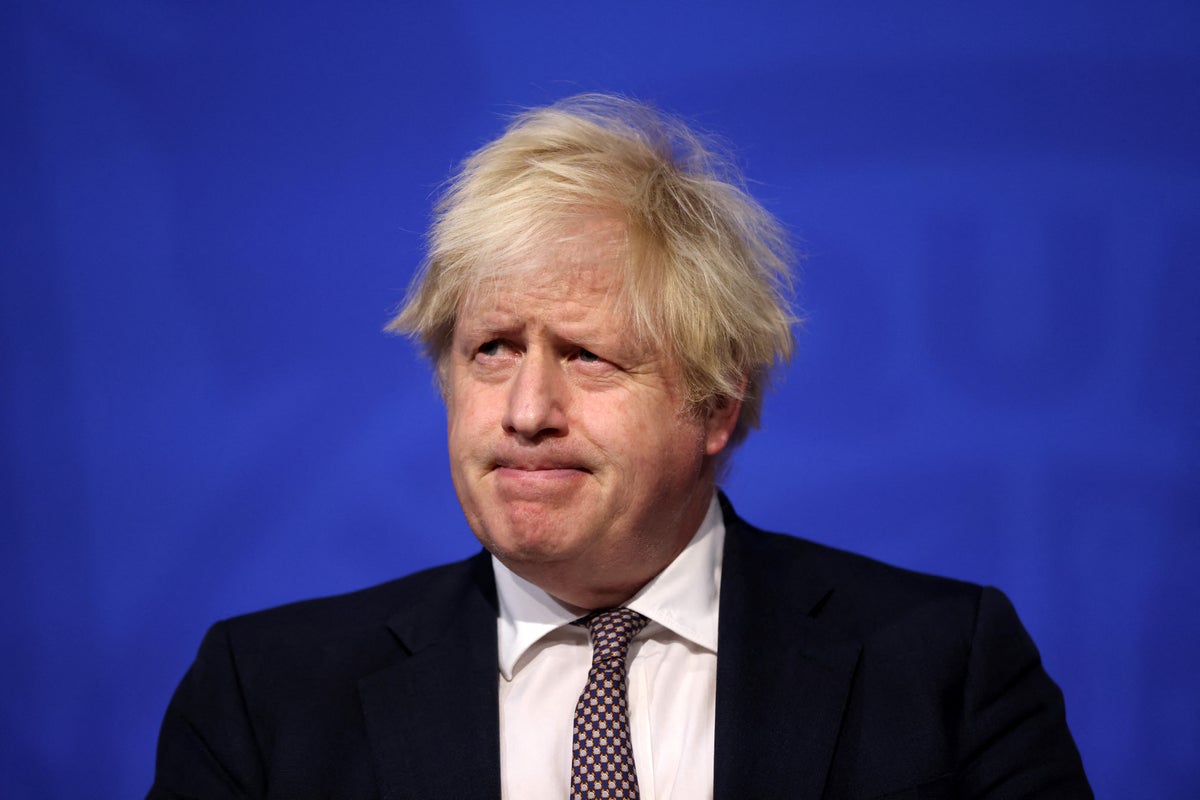
Sign up for the View from Westminster email for expert analysis straight to your inbox
Get our free View from Westminster email
Penny Mordaunt has revealed that a series of Covid-related WhatsApp messages with Boris Johnson have mysteriously vanished from her phone.
The cabinet minister said the conversations were wiped from her phone without knowing why, in bombshell written evidence given to the Covid inquiry.
Ms Mordaunt also said Mr Johnson’s former chief of staff at No 10 ignored 14 attempts to hold a meeting to talk about the disappearing communication.
It puts new pressure on the former PM to explain exactly what happened, after he told the inquiry it was not possible to access around 5,000 WhatsApp messages from his old phone.
Mr Johnson has said it was impossible to retrieve exchanges which cover the crucial months from January to June 2020 – with his lawyers suggesting it may be the phone undergoing an automatic factory reset.
Ms Mordaunt, who was paymaster general under Mr Johnson, told the inquiry she had sent the PM a message on 29 February 2020 “to raise the issue of shielding in care homes” and got a reply.
But the senior Tory discovered the exchange was missing, and realised she could not find other messages shared with Mr Johnson between March 2018 and March 2020.
Penny Mordaunt said Boris Johnson’s messages vanished without explanation
(PA Archive)
Ms Mordaunt said she kept pushing No 10’s security team for an explanation. “After some time it was suggested to us that because of a security breach the PM may have deleted all his messages and switched off his phone,” said the Tories’ Commons leader.
“However, this was portrayed to me as speculation on the part of the No 10 security team and would not explain why I had some messages and not others,” the cabinet minister added.
On her requests for a meeting with Dan Rosenfield, the then-No 10 chief of staff, she said: “From memory, we asked 14 times for a meeting with him, but had no response from his team, despite my office chasing this.”
Ms Mordaunt was later told by Cabinet Office officials that it would cost her £40,000 – £1,000 per day for six weeks’ work – to have her phone forensically examined.
The Tory minister also said two sets of messages involving Michael Gove – the former chancellor of the Duchy of Lancaster at the Cabinet Office – had also disappeared. Ms Mordaunt told the inquiry: “I would be content for my phone to be examined by the inquiry if it is thought this would assist.”
A spokesman for Mr Johnson said the former PM had “sent all relevant messages in his possession to the inquiry and has complied exactly with their requests”.
Pressed on the missing 2020 messages at the Covid inquiry earlier this month, Mr Johnson said: “I don’t know the exact reason.
“But it looks as though it’s something to do with the app going down and then coming up again, but somehow automatically erasing all the things between that date when it went down and the moment when it was last backed up.”
The former Tory leader added: “I haven’t removed any WhatsApps from my phone … I’ve done my best to give everything of any conceivable relevance.”
Rishi Sunak considered radical debit card giveaway during Covid, it emerged
(PA)
New documents shared with the Covid inquiry also revealed that Rishi Sunak considered a radical plan to give everyone in the country a pre-paid debit card in the summer of 2020 to boost spending.
But Mr Sunak ditched the idea when Treasury officials pointed out the “significant risk” of theft and fraud in sending out tens of millions of cards containing taxpayer’s cash in the post.
Elsewhere, Sir Gavin Williamson accused Mr Johnson of making a “panic decision” to close schools in January 2021.
The then-education secretary said he thought about quitting his role over the “wholly unnecessary” decision to shut schools a day after they were reopened.
Mr Williamson said he was not even given an opportunity to argue for keeping them open at cabinet before Mr Johnson’s decision – claiming it “did not sufficiently take children’s interests or wellbeing into account”.
The last batch of written evidence in the inquiry module also showed that social care minister Helen Whately had warned at the peak of the Covid crisis that discharging hospital patients into care homes was a big risk.
✕
Subscribe to Independent Premium to bookmark this article
Want to bookmark your favourite articles and stories to read or reference later? Start your Independent Premium subscription today.
SubscribeAlready subscribed? Log in
Popular videos
{{/link}}

